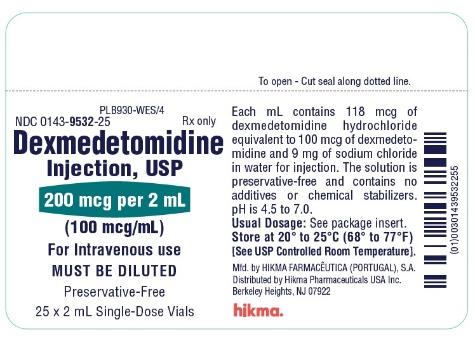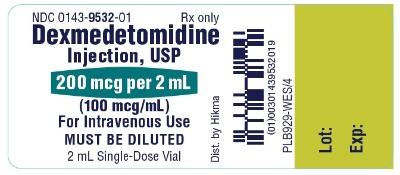Dexmedetomidine Hcl Injection while Breastfeeding

What is Dexmedetomidine Hcl Injection used for?
I am breastfeeding mother and I am using Dexmedetomidine Hcl Injection. Can it have any bad effect on my kid? Shall I search for better alternative?
8.3 Nursing Mothers It is not known whether dexmedetomidine hydrochloride is excreted in human milk. Radio-labeled dexmedetomidine administered subcutaneously to lactating female rats was excreted in milk. Because many drugs are excreted in human milk, caution should be exercised when dexmedetomidine hydrochloride is administered to a nursing woman.
Dexmedetomidine Hcl Injection Breastfeeding Analsys
Dexmedetomidine while Breastfeeding
CAS Number: 113775-47-6
Limited data indicate that very small amounts of dexmedetomidine are excreted into breastmilk for 6 hours after the end of an infusion. Because of the small amounts of colostrum secreted in the first day postpartum, the dose received by a neonate is unlikely to be of any consequence when the drug is used during delivery. The drug is absent from breastmilk by 24 hours after the end of an infusion. Dexmedetomidine would not be expected to cause adverse effects in breastfed infants or neonates.

What should I do if I am breastfeeding mother and I am already exposed to Dexmedetomidine Hcl Injection?
We are not completely sure about safety of Dexmedetomidine Hcl Injection in breastfeeding. We would suggest you to contact your doctor or health care provider and explain your situation with Dexmedetomidine Hcl Injection. If you observe anything abnormal with your baby please call 911 or contact emergency services in your area.
I am nursing mother and my doctor has suggested me to use Dexmedetomidine Hcl Injection, is it safe?
If your doctor considers Dexmedetomidine Hcl Injection safe enough to prescribe for you that means its benefits outweigh its known risks.
If I am using Dexmedetomidine Hcl Injection, will my baby need extra monitoring?
Not Sure, Please check with your doctor or lactation consultant.
Who can I talk to if I have questions about usage of Dexmedetomidine Hcl Injection in breastfeeding?
US
National Womens Health and Breastfeeding Helpline: 800-994-9662 (TDD 888-220-5446) 9 a.m. and 6 p.m. ET, Monday through Friday
UK
National Breastfeeding Helpline: 0300-100-0212 9.30am to 9.30pm, daily
Association of Breastfeeding Mothers: 0300-330-5453
La Leche League: 0345-120-2918
The Breastfeeding Network supporter line in Bengali and Sylheti: 0300-456-2421
National Childbirth Trust (NCT): 0300-330-0700
Australia
National Breastfeeding Helpline: 1800-686-268 24 hours a day, 7 days a week
Canada
Telehealth Ontario for breastfeeding: 1-866-797-0000 24 hours a day, 7 days a week
